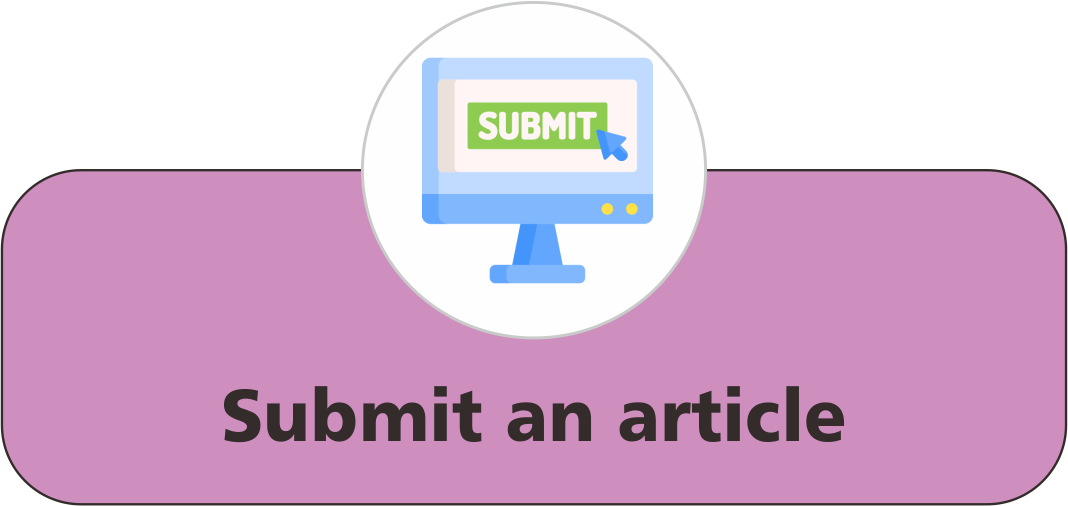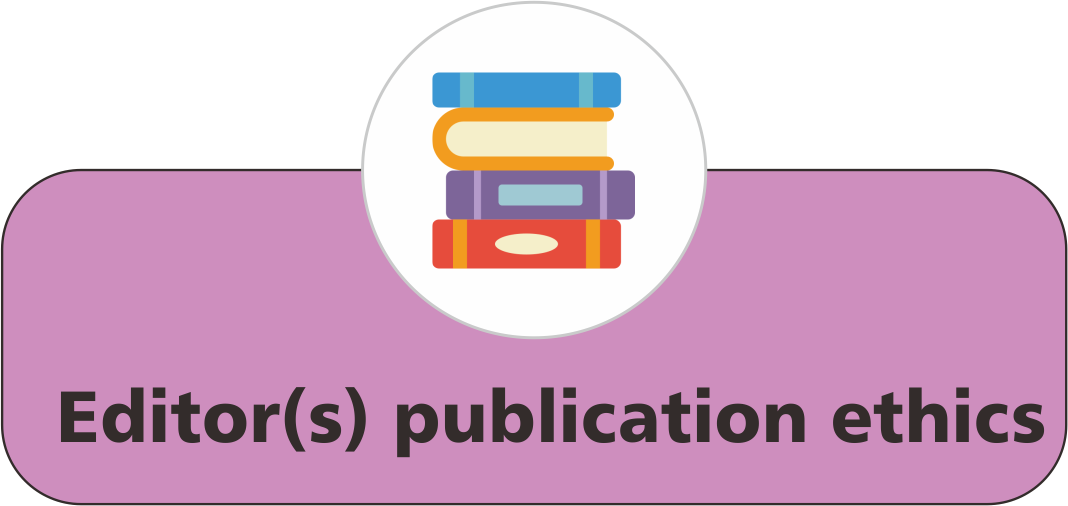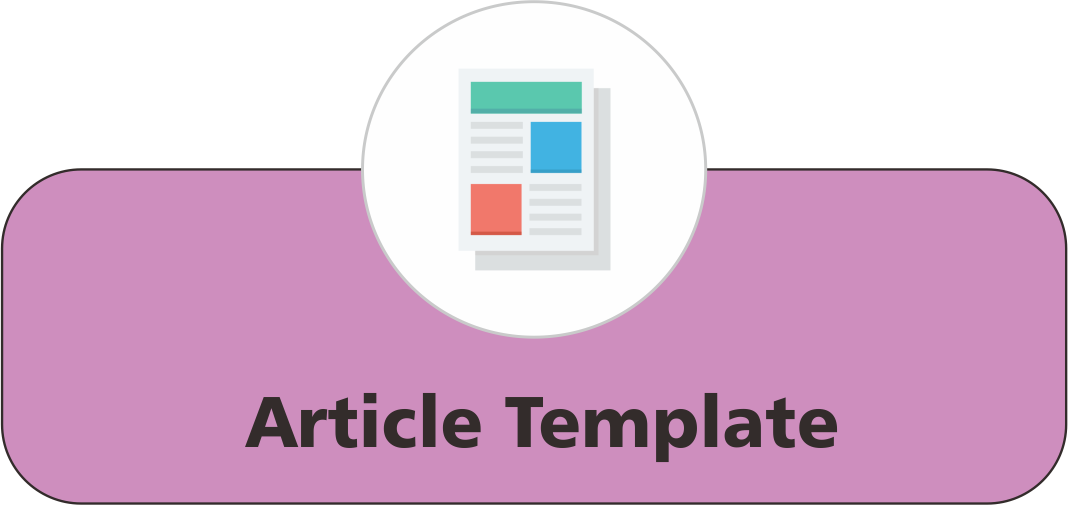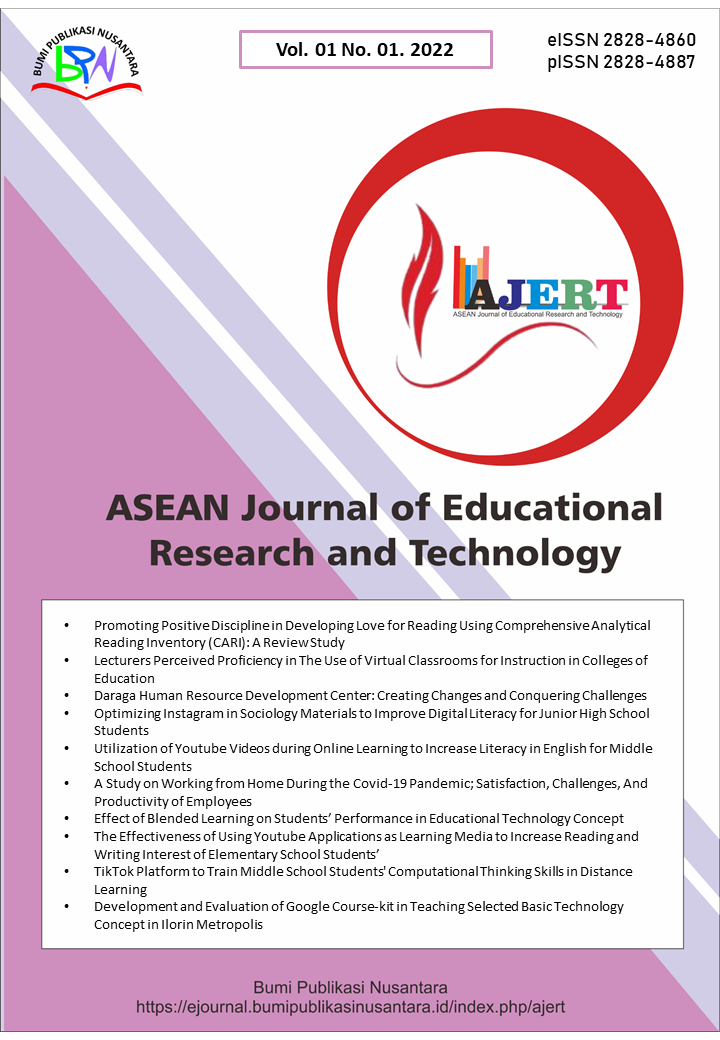Primary Education Undergraduates’ Competency in the Use of Artificial Intelligence for Learning in Kwara State
 ), Eyiyemi Veronica Omolafe(2), Victoria O. Animashaun(3), Ebenezer Omolafe Babalola(4),
), Eyiyemi Veronica Omolafe(2), Victoria O. Animashaun(3), Ebenezer Omolafe Babalola(4),
(1) University of Ilorin
(2) University of Ilorin
(3) University of Ilorin
(4) University of Ilorin
 Corresponding Author
Corresponding Author
Abstract
Keywords
References
Abbas, P. G. (2017). A review of the literature on the integration of technology into the learning and teaching of English language skills. International Journal of English Linguistics, 7(5), 95-106.
Adeoye, A. A., and Adeoye, B. J. (2017). Digital literacy skills of undergraduate students in Nigeria universities. Library Philosophy and Practice (e-journal), 1, 1-23.
Babatunde, A. A. (2020). The state of primary education in Nigeria: a critical review. South Asian Research Journal of Arts, Language, and Literature, 2(3), 47-52.
Caplar, N., Tacchella, S., and Birrer, S. (2017). Quantitative evaluation of gender bias in astronomical publications from citation counts. Nature Astronomy, 1(6), 1-5.
Elsayed, N., Thomas, B., Marriott, K., Piantadosi, J., and Smith, R. (2015). Situated analytics. In 2015 Big Data Visual Analytics, 29, 1-8.
Olaniyan, D. A., and Obadara, O. E. (2008). A critical review of management of primary education in Nigeria. International Journal of Africa and African American Studies, 7(1), 9-20.
Popenici, S. A., and Kerr, S. (2017). Exploring the impact of artificial intelligence on teaching and learning in higher education. Research and Practice in Technology Enhanced Learning, 12(1), 1-13.
Schölkopf, B. (2015). A review on application of artificial intelligence inteaching and learning in educational contexts. International Journal of Learning and Development, 8(4), 106-118.
Article Metrics
Abstract View : 2212 times
: 2212 times Download : 1175 times
Download : 1175 times
Refbacks
- There are currently no refbacks.
Copyright (c) 2022 Bumi Publikasi Nusantara

This work is licensed under a Creative Commons Attribution-ShareAlike 4.0 International License.









